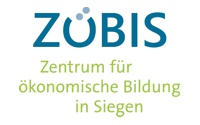MTED - Interactive Lectures
MTED Study
The increasing proliferation of mobile devices brings with it opportunities for developing innovative didactic scenarios. This potential for development is particularly evident in lectures and lessons with directive teaching methods, in which participants assume a passive and receptive role and the lecturer or teacher receives very little feedback on the learning progress of his or her students. In didactic scenarios without accompanying tutorials, this problem is even more prominent, as the knowledge transmitted can neither be applied nor tested in other contexts. In order to address this issue, a technical system and a concept for integrating interactive exercises into didactic scenarios is being developed as part of the MTED project. An interventional study (n=331) will investigate the influence of interactive exercises in economics lectures on students' learning processes.
Context
Current forecasts show that there will be a strong growth in the use of mobile devices over the next few years (Llamas/Stofega 2013). This development can be used to more actively include the participants in the learning process with the help of mobile devices, and to investigate the effects of this on the transfer of knowledge. In this context, lectures without accompanying tutorials constitute an interesting subject for research, as (1) the participants can neither apply nor transfer the knowledge learned during the lecture, and (2) the lecturer receives no feedback on the learning progress of his or her students. Furthermore, current findings in modern didactics, which are rarely considered during the planning phase when using directive teaching methods, indicate that such an intervention is necessary. Progressive educational concepts as well as cognitivist and constructivist theories of learning consider learning as an independent activity, and see the learner (subject) in a manner that is very similar to the (neo-liberal) concept of a (self-)responsible and self-managing subject. Based on this concept, studies from scholastic environments show that directive teaching methods are more effective in transmitting knowledge, and therefore superior to other methods. This conclusion was made based on studies that show that frontal instruction is more effective, efficient and time-saving than other teaching methods when learning cognitive competencies and when applying knowledge.
On the other hand, non-directive teaching methods may be beneficial when non-cognitive goals, such as social learning, cooperative abilities, creativity, imagination and self-confidence are to be integrated into the curriculum. This was the conclusion Pätzold arrived at after evaluating a study involving 1400 school students and 177 teaching staff, and discovering that two-thirds of the students felt that frontal teaching negatively affects motivation. The studies carried out by the Nickolaus research group could not find any clear evidence to support the assertion that a directive and guiding approach is inferior for industrial and technical vocational training courses. These studies allow requirements to be inferred for planning school curricula. However, university lectures typically take the form of directive teaching methods, and in particular from an economic point of view, the utilization of alternative teaching methods appears to be difficult to implement. On the other hand, a study by Wiemann showed that the use of various methods (discussions, use of clicker systems) can increase the knowledge gained, as well as improve motivation and the transmission of theoretical concepts.
MTED Project
The project MTED (www.mted.de) provides a “rapid application development tool” (MTED Editor) for the design of interactive lectures and lessons. The implementation of learning applications carried out via MTED modules (general and domain specific) that contain technical contents and pedagogical structures.

Research Prospects
During the winter term 2013/12 an intervention study to analyze the effect of MTED modules on knowledge acquisition of students in university lectures was conducted. The study is currently in the first stage. First results will be published here.
Contact
- Fritjof Kollmann (kollmann@zoebis.de)
